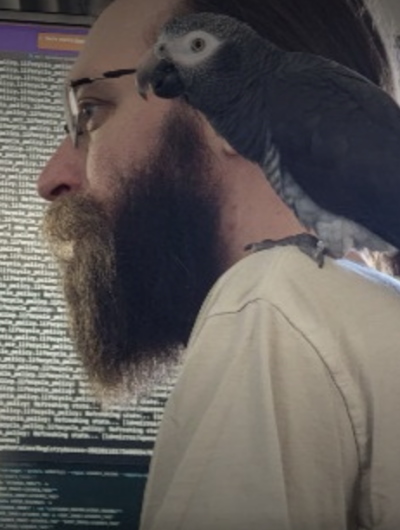2022-August-18
Did you know? You can share this story using the social media icons on the upper left. Use the hashtag #WeAreCisco. You can also rate or comment on the story below.
Rising Talent, Rising Stars.
BY MELISSA USSERY · GLOBAL MARKETING AND COMMUNICATIONS LEAD · UNITED STATES
WITH HELEN GALL
4 MINUTE READ · 6 MINUTE LISTEN

At Cisco, there’s a simple formula for success: Our strategy + our purpose. Key to this is our Conscious Culture.
Cisco’s Conscious Culture is infused in how we recruit and train our people, as well as how we work together. Amid the pandemic, day-to-day collaboration has changed dramatically. What employees and corporations need and want has also changed. Therefore, we must look at our people practices differently, including who we hire, how we hire them, and why we hire them.
Emerging Talent Recruiting (previously University Recruiting) aims to identify, attract, recruit, and hire the best early-in-career talent through a diverse and inclusive strategy that aligns with Cisco's purpose, supports our business goals, and enhances our brand.
Cisco has always believed in the long-term value of early-in-career talent. Historically, we have partnered with universities around the world to source early-in-career talent. Therefore, if a candidate didn't have at least a bachelor's degree, they didn't qualify for most of our entry-level roles. Yet, obtaining a bachelor’s degree is not the only pathway to acquiring skills, nor does a bachelor’s degree equate to job success.
We know that the best talent comes from diverse educational backgrounds and skill attainment. Our new strategy will focus on hiring university talent and rising talent. Rising talent is crucial to Cisco's future growth and includes individuals skilled through alternative educational paths, such as community colleges, boot camps, apprenticeships, or other lived experiences.
Therefore, in FY23, 40 percent of emerging talent roles will not require a college degree. This inclusive hiring approach prioritizes skills, aligns with our purpose, and enables us to better compete for talent in today’s market.
Here are just a few stories illustrating how employees from diverse backgrounds and experiences chart successful careers here at Cisco.

George Huber, a software engineer, discovered his passion for technology when he was 7 years old. He has a diverse working background, from customer service to operations specialist.
“I bring a distinct perspective to the team compared to someone who did get a traditional four-year degree,” says George. “Teams should hire people who know how to learn and expand the team's viewpoints because diversity in perspective expands the team's capabilities."

Kelvin Charles, former stonemason and now systems engineer, embraces Cisco's unique hiring culture. His fascination with computers started when he was young, after he built his own computer at home.
Intrigued, he spent hours figuring out what made it work. Kelvin notes, "I appreciate Cisco for looking at my nontraditional path to engineering and seeing it as an asset, not a liability."

Marcus Moffett, CTO and senior director of Engineering and Architecture, came to Cisco after a successful career in the U.S. Air Force. At the time, the role required an engineering degree, but fortunately, Cisco accepted his military education and experience based on the job requirements.
"I would not be the person I am with the skills I possess if I had taken that route,” says Marcus. “I do not regret any of the choices I made in my career."

Roshini M's interest in Cisco began when she passed the Bangalore campus every day on her way to her university. At the suggestion of her instructor, she enrolled in an elective in which she acquired her CCNA, even though she had no background in networking
“Not only did I enjoy the material that I learned in the course, but it also put me on a direct path to Cisco,” she says.

Before returning to school at age 30, Aries Calaman was a single mom working as a commercial driver. Cisco recruited her as a Business Analyst at the Grace Hopper Conference in 2019.
“Often a candidate who did not follow a traditional path has something inside of them that pushes them further and makes them more determined to succeed,” Aries says. Why wouldn’t you want someone like that on your team?”
These stories underscore why Cisco is the best place to work, and how we do it. There are plenty more stories like this at Cisco – with more on the way. Keep on the lookout to understand how expanding access to nontraditional applicants boosts our competitiveness and creates the diverse workforce needed for tomorrow.
Related Links
- Emerging Talent at Cisco
- Powering an Inclusive Future: A message from CEO Chuck Robbins
- Our Impact - CSR & Time2Give
- Cisco Purpose Report 2021
Connect everything. Innovate everywhere. Benefit everyone.
Share your thoughts!
Log in to rate and commentShare your thoughts on the story here!